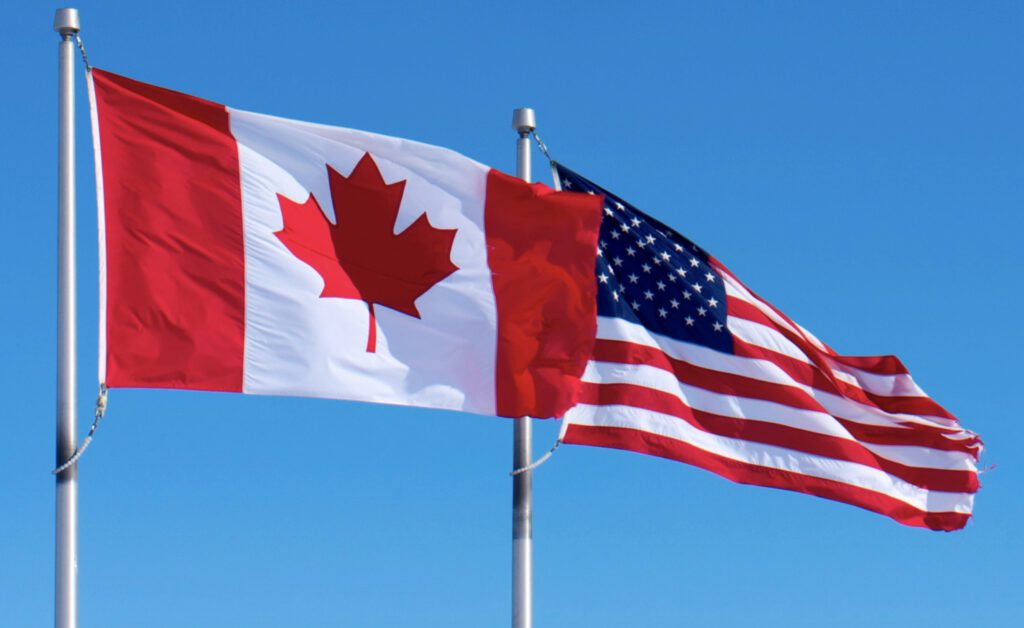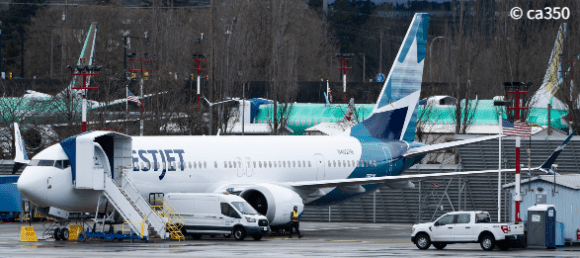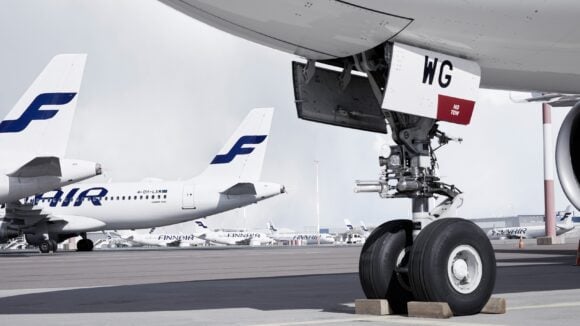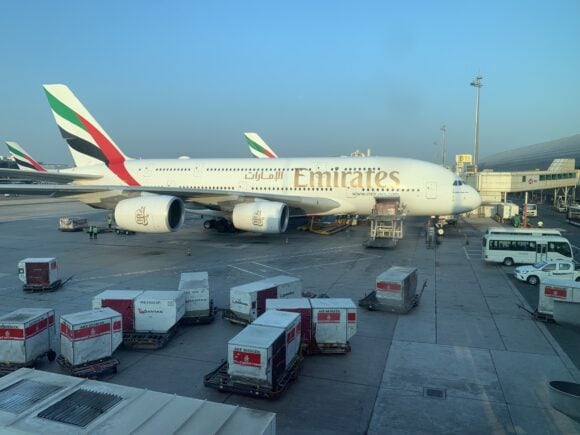
The opinions expressed in this article are those of the author, and may not reflect the opinion of Air Insight Group LLC. Bookings from key parts of the world to the US have taken a downturn after irresponsible remarks by US President Donald Trump and his threats to take over Canada, Greenland, and to retake the Panama Canal. Combined with more active ICE activity at customs and potential cancellation of visas on arrival, several foreign governments have now issued warnings against travel to the United States. The impact on airlines and the tourism industry will be substantial.
Canadian Travel Heavily Impacted
Reports from OAG, which tracks airline schedules and flight data, indicate that advanced bookings from Canada to the US are falling precipitously. Their analysis from a major GDS shows a 70% drop in advanced bookings in every month through September. That is a substantial downturn, and indicative of both uncertainty about the future, and Canada’s reaction to the verbal and economic slaps in the face from Mr. Trump.
Canada is our second largest source of tourists. We’ve heard from friends that the annual summer migration of tourists from Quebec to Old Orchard Beach, where you hear French spoken all summer, is now endangered and that renters have lost a substantial portion of normal tourist bookings. This has been confirmed in the local news reports from Portland.
Similar impacts are happening with Canadian airline flights, as they are following the anger and reducing flights to the US, particularly for leisure destinations. If we compare airline schedules from the low season in January, just before Trump’s inauguration to flights today, there has already been a significant decrease in capacity. Air Canada has 7.4% fewer monthly seats, WestJet is down 8.5%, Porter is down 15.4%, Flair is down 25.2%, and Air Transat is down 15.4%. This primarily leisure carriers, Flair, Air Transat and Porter, will take the brunt of the traffic drop.
The largest drop-offs are in leisure markets, including Fort Meyers, Fort Lauderdale, Orlando, Miami, Palm Beach, New Orleans, and Las Vegas. Each of these cities has a greater than 10% drop in capacity in their April schedule. Clearly, Mr. Trump is having an impact on inbound tourism to the United States. The snowbirds are now headed for Mexico and the Caribbean instead. Being across the Detroit river from Canada, we are already feeling the impact in Michigan as well, as bridge crossings are down from prior years, which will impact the local economy.
European leisure travel is falling as well. A number of European countries have issued warnings about travel to the United States, including Germany, Denmark (whose territory Greenland Mr. Trump covets) and others. Those warnings could cost the US $120 billion in tourism revenues, according to an NYU professor of international hospitality and tourism. That’s a 12% total drop in tourism. Who will gain? Other destinations. Who will lose? US airlines, resorts, restaurants, and their employees.
Mr. Trump and Elbows Up
Characterization of Canada as not a real country, our border as an arbitrary line, speaking of Canada as our 51st state, insulting their Prime Minister by calling him governor, in addition to unreasonable tariffs, have resulted in upsetting a neighbor with a global reputation of kind behavior. One needs to remember that the current USMCA trade agreement was renegotiated in June 2020 by Mr. Trump’s administration, so if someone is to blame for a poor trade agreement, it is Mr. Trump himself. The implementation of tariffs will have a chilling impact on the economies of both countries.
You can feel the angst and frustration in Canada if you watch Hockey Night in Canada on CBC, and see the crowds in Canada booing the Star Spangled Banner and joining the singing of O Canada in strong voice before the games. Unfortunately, most US broadcasters no longer cover the anthems, so we rarely see that true anger on television here. The phrase “elbows up” has become a new mantra north of the border, reflecting their hurt and disappointment from a former ally suddenly turning into a bully. We hope our friends in Canada realize that most Americans disagree strongly with our President and respect Canada’s sovereignty.
The Hidden Costs of a Trade War
The World Trade Organization (“WTO”) has arrangements under which aircraft parts and components are tariff free around the world. If tariffs are implemented that tax parts going across borders, airlines may change to shift maintenance away from US providers that pay higher taxes to off-shore facilities in other countries. Those major US airlines that have strong MRO operations may be paying more for parts than their competitors, who may gain competitive advantage in international markets as a result.
The question of an AOG and bringing a spare part from a foreign base into the US for maintenance is another question that emerges. Would a tariff be applied on parts crossing the border? Would I be taxed on a spare I already own being flown in from our maintenance base? These type of situation are the reason behind the WTO’s global agreements on aviation and aviation parts.
Trade actions have many follow-on actions, and require careful analysis. Mr. Trump, it appears, would rather forego the analysis of which American companies tariffs will harm, and move forward with actions that will have deleterious results quickly. Trade wars benefit nobody, and eventually lead to higher prices.
Former President Ronald Reagan, by no means a liberal, had this to say about tariffs:
“At first, when someone says, ‘Let’s impose tariffs on foreign imports,’ it looks like they are doing the patriotic thing by protecting American products and jobs, and sometimes for a short while it works, but only for a short time.
What eventually occurs is: First, home grown industries start relying on government protection in the form of high tariffs. They stop competing and stop making the innovative management and technological changes they need to succeed in world markets. Then, while all this is going on, something even worse occurs. High tariffs inevitably lead to retaliation by foreign countries and the triggering of fierce trade wars. The result is more and more tariffs, higher and higher trade barriers, and less and less competition.
So, soon, because of the prices made artificially high by tariffs that subsidize inefficiency and poor management, people stop buying. Then the worst happens. Markets shrink and collapse, businesses and industries shut down, and millions of people lose their jobs. The memory all this occurring back in the 1930s made me determine when I came to Washington to spare the American people the protectionist legislation that destroys prosperity.”
The Bottom Line for Airlines
A 12% drop in leisure travel from what were recently allies in Europe and North America will have a deleterious impact on airlines, hotels, restaurants, theme parks and other tourist attractions. Combined with tariffs, that will likely increase the costs of MRO from an international supply chain and place US airlines at a competitive disadvantage, could bring about a recession in a key industry. Airline stocks are down, with the market reacting to that prospect since Mr. Trump entered his second term. And all of that is without taking into account the potential for higher costs for aircraft, which have an international supply chain.
The Trump administration’s territorial expansion comments are already having negative impacts on the US economy, even before tariffs are in place. Unless Congress can stop him, this could become very ugly, very fast. Mr. Reagan was right about tariffs, which will simply exacerbate the pain the airlines will feel as the rest of the economy deals with higher costs and discretionary spending for travel falls.
Views: 327
About The Author
Take AirInsight for a Test Flight
7 days full access — premium analysis and the complete data model library — for $1. No commitment.
Start My Test Flight →



